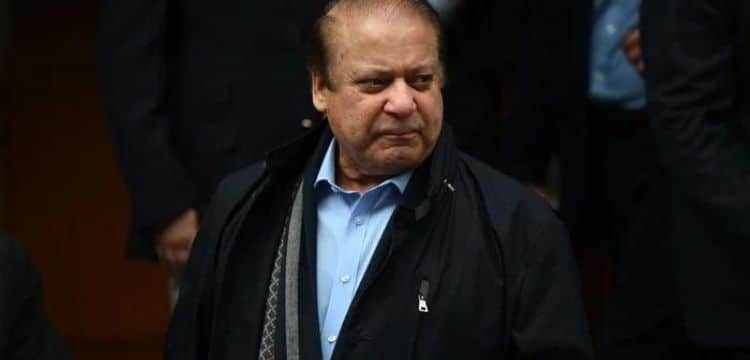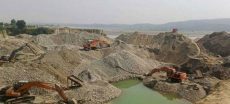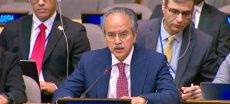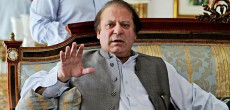[vc_row][vc_column][vc_column_text dp_text_size=”size-4″]Nawaz Sharif, whose full name is Muhammad Nawaz Sharif, was born on December 25, 1949, in Lahore, Pakistan. He was a prominent Pakistani businessman and politician, serving as the Prime Minister during the years 1990–93, 1997–98, and 2013–17.
Business and Political Career
Start Nawaz Sharif obtained an LL.B. degree from the University of the Punjab in Lahore and joined the influential House of Ittefaq (Ittefaq Group), a family-owned industrial conglomerate with interests in sugar, steel, and textiles. His entry into politics began with his role as a member of a provincial council in Punjab. In 1981, he was appointed as the finance minister for the province, and after the elections in 1985, he became the chief minister. He also became the leader of the Pakistan Muslim League (later known as the Pakistan Muslim League–Nawaz [PML-N]), the primary party of the Islamic Democratic Alliance coalition. In October 1990, he was elected as Pakistan’s Prime Minister after the dismissal of Prime Minister Benazir Bhutto by President Ghulam Ishaq Khan.
Also Read: 50% Pakistani Considers Nawaz Sharif The Hope For Country’s Economy
First Term as Prime Minister
During his first term, Nawaz Sharif initiated an ambitious program of economic reform, including the privatization of state-owned businesses. However, Pakistan faced ongoing conflicts over the Kashmir region and defied U.S. calls to suspend its nuclear program, leading to a halt in U.S. financial assistance. Sharif also grappled with increasing opposition as he tried to balance between the Islamic right wing and social democrats. In 1993, he was dismissed from office, similar to the circumstances that led to Bhutto’s removal. Bhutto then became Prime Minister, and Sharif remained her vocal opponent. He returned to power for a second term after the 1997 elections.
Second Term as Prime Minister
In his second term, Sharif worked to eliminate the constitutional provision that had led to his previous dismissal from office. He also attempted to reduce the powers of the president and the military. However, a constitutional crisis erupted when he tried to block the appointment of additional judges to the Supreme Court. President Farooq Leghari resigned, accusing Sharif of trying to gain absolute power. Despite a strong mandate, Sharif faced significant challenges, including economic difficulties, foreign debt, corruption, separatist conflicts, and tensions with India. In late 1999, he was overthrown by General Pervez Musharraf in a military coup.
Also Read: Nawaz Sharif To Surrender Today in Legal Cases Before The Court
Exile and Return After being sentenced to life imprisonment on charges of hijacking and terrorism, Sharif agreed to leave Pakistan for 10 years in exchange for a commuted jail sentence. He went into exile in Saudi Arabia. In 2007, following a Supreme Court decision allowing his return, he came back to Pakistan with the hope of challenging Musharraf’s rule. However, he was quickly deported back to Saudi Arabia. In late 2007, he returned again and registered to run in the upcoming elections.
In the February 2008 elections, the PML-N finished second to Bhutto’s party, which was led by her widower, Asif Ali Zardari. Sharif’s party formed a coalition government with the PPP, but internal disputes emerged. In August 2008, the coalition initiated impeachment proceedings against Musharraf, who subsequently resigned. Sharif’s party withdrew from the coalition and competed in the presidential elections but did not win.
Friction with Zardari and Continued Political Activities Tensions between Sharif and Zardari escalated in 2009, with legal battles and disputes over the reinstatement of dismissed Supreme Court judges. Sharif’s efforts led to the return of Chief Justice Iftikhar Mohammad Chaudhry and other judges.
Third Term As Prime Minister
In 2013, Sharif made a remarkable political comeback, securing a third term as Prime Minister. His government focused on the economy, energy, and extremism, with mixed results. Relations with the military were strained, and extremist attacks remained a challenge.
Corruption Allegations and Exile
In 2017, Sharif resigned due to a corruption probe stemming from the Panama Papers leak, which linked his family to offshore companies used for real estate purchases. He was disqualified from office by the Supreme Court. In 2018, he and his daughter were convicted in absentia and sentenced to prison. They returned to Pakistan but were later released. Sharif continued to play an active role in Pakistani politics from abroad and was involved in the formation of the Pakistan Democratic Movement (PDM), a coalition of opposition parties. In 2022, the PDM successfully removed Imran Khan from office, and Sharif’s party elected his brother Shehbaz Sharif as the new Prime Minister.
As the 2023 elections approached, Nawaz Sharif’s chances of returning to office appeared favorable. However, he remained abroad while facing legal challenges in Pakistan, continuing his involvement in the country’s politics.[/vc_column_text][/vc_column][/vc_row]











